Stay or Go? Know the Signs That Matter Before You Choose What’s Next
Understanding the Turning Point Before It Turns Into Regret

There is always a moment when you start to wonder if it is time for something different. Maybe the work is steady, but it has started to feel uninspiring. Maybe you are not learning the way you once did. Or maybe you are delivering more than ever but see no change in pay, title, or direction. Whatever sparks that thought, it deserves more than a quick reaction. At some point, you may find yourself standing between stability and potential, weighing what you have against what you hope to gain. It is a space filled with both uncertainty and possibility, and the best way to move through it is to recognize the signs early, weigh the options with clarity, and understand exactly what you are walking toward rather than simply what you are leaving behind.
Signals It’s Time to Reassess
Contracts rarely end with a dramatic gesture. More often, they fade into extensions, added deliverables, and a “just keep going” mindset that feels comfortable until you realize the arrangement has stopped evolving. Industry data shows that many engineering contracts are extended again and again, but not always renegotiated. That gap matters. Without regular check-ins and resets, rates stay flat, responsibilities grow, and satisfaction drops. Staffing Industry Analysts report that less than half of independent contractors describe themselves as truly satisfied with their current contracts, and a lack of renegotiation is often at the root.
Stalled compensation is one of the clearest triggers. You deliver more, you stay longer, yet the pay never changes. Right alongside it is stagnation. It shows up when no new projects are coming in, when the same tools sit on your screen day after day, and when the challenges stop evolving. That sameness builds quietly until every task feels like a repeat of the last. Over time, even the most talented engineers start to lose the sense of momentum and discovery that drew them to contracting in the first place.
And when communication fades, the drift accelerates. If recruiters and clients stop having real conversations about deliverables, future projects, or where the work could lead, the contract stops feeling like a partnership and starts feeling like a placeholder.
Staying When the Contract Extends
Sometimes, staying is the right choice, but only when it is done with intention. An extension is not simply a continuation of the same work. It is a chance to reassess what the role means for you in this moment. A skilled recruiter becomes invaluable here. Before you agree, examine the rate. Has it kept pace with your contributions, or has it remained static? Consider the scope. Will the extension bring new responsibilities or projects, or is it merely a repetition of what you have already delivered?
The contractors who thrive in extensions are those who see them as a conscious decision rather than an automatic response. They seek clarity on how their role is progressing, what skills they might cultivate, and how the client perceives their value through compensation and project direction. If those conversations reveal thin answers or the extension begins to resemble a placeholder, you will have the insight you need to reevaluate your next move.
As most of our recruiters will tell you, an extension is never just paperwork. It is an inflection point, a moment to either realign the work with your goals or to recognize that it no longer serves you. That pause for open dialogue is what separates those who simply continue from those who choose a deliberate path forward.
Making the Move with Intention
When the signs point toward change, how you step forward matters as much as the decision itself. Leaving for the sake of leaving can lead to disappointment, while leaving with a clear sense of purpose opens doors. This is where a recruiter’s perspective becomes a valuable guide. They can share data on current rates for your specialty, insight into which clients are investing in robotics or backend systems, and an honest view of how your skills align with market demand.
Reports from ASA and Bullhorn show that mobility has become a defining feature of today’s workforce. Voluntary departures have climbed in recent years, with contractors often at the forefront of that movement. But there is a meaningful distinction between simply moving with the tide and making an intentional decision about your next role. Ask yourself: will the new contract expand my expertise, connect me to teams working on meaningful technology, or position me for long-term growth? If the only change is a higher hourly rate, it may be worth pausing before you make the leap.
The best transitions happen when there is a plan behind them. That means looking beyond the next contract and thinking about the bigger picture. Are you choosing work that builds toward something larger, or are you taking whatever comes next? Having those conversations early, with yourself and with a recruiter who understands your goals, can turn what might have been just another move into a meaningful step forward.
Final Thoughts
Contracting has always been about balance. It is the balance between the security of steady work and the pull of new possibilities. The best decisions are rarely made in a rush. They come when you take the time to study the signs in front of you. Is pay holding steady while expectations climb? Has communication slowed to the point where you no longer know what comes next? Are you still growing, or has the work started to feel the same day after day? These questions matter because they shape not just the next contract but the trajectory of your career.
Sometimes the answers lead you to stay, sometimes they lead you to go. What matters most is that you do not drift into either. When you approach the decision with clarity, you take control of what comes next. That is when extensions become opportunities instead of placeholders, and moves to new projects become intentional steps rather than abrupt exits.
If you are beginning to feel that pull toward change, start the conversation now. Talk with a recruiter about rates for your specialty, which clients are investing in your area of expertise, and where your skills are most valued. Ask questions, gather data, and use that knowledge to make an informed choice. Staying or going is never just about this contract. It is about building a path that feels deliberate, connected, and worth following.
Not sure whether to stay or go?
You do not have to figure it out alone. Our recruiters are here to talk through your options, your goals, and what the market is really offering right now.
Meet the team and start the conversation.



